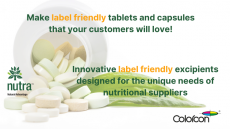Dietary supplement reduces prostate cancer marker
like selenium and carotenoids may slow the rise in PSA levels, a
marker for prostate cancer progression in some men, report Dutch
researchers.
The team from the Erasmus Medical Center in Rotterdam developed a water-soluble powder supplement to be taken by 37 men with prostate cancer three times a day along with 20g of margarine.
The foods included a number of nutrients previously shown to protect against prostate cancer, including 50mg of alpha-tocopherol, 1.5g of phytosterols, 0.2 mg selenium, green tea, isoflavones and the carotenoids lutein and lycopene (10mg each).
The subjects all had rising levels of prostate-specific antigen (PSA), a protein that often demonstrates the presence of prostate cancer and its progression.
After six weeks, the men had lower levels of male sex hormones, known to boost prostate cancer growth, and, in 21 patients, the supplement stopped the rise in PSA.
The authors warned that the effect on PSA levels did not necessarily mean that tumours would stop growing. However author Dr Ries Kranse noted that reducing PSA levels could help lower a man's risk of developing prostate cancer in the first place.
"If future studies confirm that these observations translate into a slowing of disease progression, a dietary intervention may become an attractive option for prostate cancer treatment and prevention," write the researchers in the 20 February issue of the International Journal of Cancer (vol 113, issue 5, pp835-40).
Prostate cancer is one of the biggest cancer killers in industrial countries and affects more than 500,000 men worldwide every year. This number is expected to increase with the ageing population, prompting increasing focus on prevention.
The researchers suggest that the effects on PSA levels are produced by the phytoestrogens.
"As we have observed a hormone response, we think it is reasonable to assume that the phytoestrogens are at least in part involved," they write.
Assessment of the effect of antioxidants was not possible in the study.
The US Food and Drug Administration has approved a qualified health claim for the reduced risk of certain cancers by consuming the trace mineral selenium.











